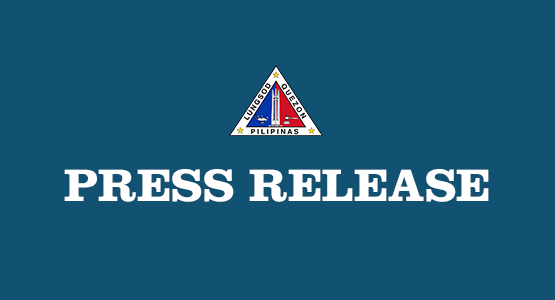
To avoid panic buying and hoarding, the Quezon City government will limit the number of items or goods a person can purchase during the implementation of the enhanced community quarantine (ECQ) from Aug. 6 to 20.
In the latest ECQ guidelines issued by Mayor Joy Belmonte, the Business Permits and Licensing Department (BPLD) is mandated to implement Ordinance No. SP-2948 S-2020 or “Regulating the Selling of Basic Necessities During Calamities.”
“We have to impose limits to avoid panic buying and hoarding that may lead to supply problems and could prevent other citizens from purchasing the needs of their families during the ECQ,” said Belmonte.
“Mas mabuti na ngayon pa lang ay nakalatag na ang polisiyang ito upang magkaroon ng pagkakatoan ang lahat na makabili ng kanilang pangangailangan,” she added.
Under the said Ordinance, purchase of sardines is limited to five cans per brand per person while other canned goods such as meat loaf and corned beef is limited to 10 cans per brand per customer, among other goods.
She however assured her constituents that there is enough food supply in Quezon City while the delivery of goods will remain unhampered during the ECQ.
The latest directive, which will take effect on midnight of Aug. 6, also sets Public Safety Hours at 8 pm to 4 am. as agreed upon by the Metro Manila Council (MMC).
During that period, only persons going to and from work, authorized persons outside of residence (APOR) and those who have confirmed vaccination schedules are allowed to go out.
Belmonte also ordered the revival of quarantine passes issued by the barangay to no more than one person per household, preferably to a person who is fully-vaccinated and otherwise does not have a company ID or other APOR ID.
Dine-in, whether indoor or outdoor, is not allowed but restaurants and other food establishments may provide take-out or delivery services at any time, even during public safety hours.
Belmonte also implemented a ban on selling of liquor and the operation of personal care services such as barber shops, nail spas, parlors and salons.
In addition, the Mayor mandated essential businesses that operate indoor facilities, such as supermarkets, palengkes and the like, to limit their capacity to ensure at least a two meters distance among customers and ensure sufficient ventilation.
Business establishments allowed to operate should strictly implement the Kyusi Pass digital contact tracing method. A lessee inside a larger establishment (such as individual stores inside a
mall) should also have its own KyusiPass contact tracing log. All establishments, institutions and facilities are required to provide their QR code scanners as mandated under the City’s Kyusi Pass Ordinance.
All forms of public transportation are allowed to operate, but passengers must be one seat apart while tricycles shall have only one passenger. As an exception, e-trikes and similar vehicles with larger capacities shall follow the one seat apart rule.
Under the latest guidelines, no home quarantine shall be allowed for confirmed COVID-19 cases and symptomatic close-contacts. They must be transferred to the city’s hospitals, HOPE community caring facilities, barangay isolation facilities and national government-accredited isolation hotels.
As an alternative measure to prevent imminent depletion of quarantine capacity, Belmonte said the City Government may declare a modified Special Concern Lockdown over the concerned dwelling, or authorize the dwelling as a temporary quarantine facility, subject to inspection by health authorities.
Residential, housing and commercial construction shall be allowed, provided that workers are housed on-site and subject to strict compliance with minimum health protocols.
All returning oveaseas workers must complete the prescribed quarantine period set by the Bureau of Quarantine (BOQ).
###







